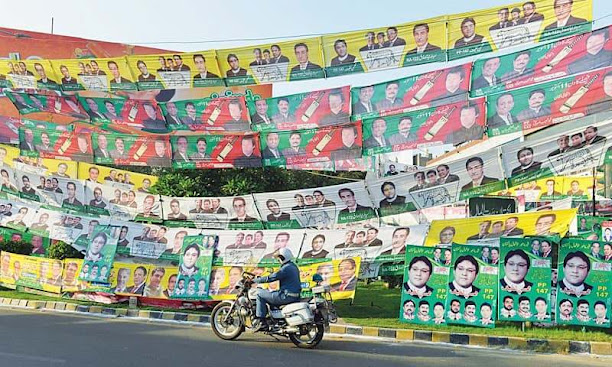Punjab Assembly passes Defamation Bill 2024, A serious violation of the fundamental rights
What is the defamation law passed in the Punjab Assembly?
The Provincial Government of Punjab Government of Punjab Province has decided to pass the Defamation Amendment Bill 2024 in the House. Under this amendment bill, any person can be punished for making misleading claims in electronic, social media and print media against government officials and ordinary citizens. Critics are calling it a 'black law', aimed at 'suppressing the voice of dissent'. This is being widely seen as a serious violation of the fundamental rights of freedom of expression and freedom of the press.
It should be noted that the government rejected the proposal of journalist organizations to postpone the bill. In a meeting with the Information Minister, the journalistic organizations had demanded that the bill be delayed by a few days.
The bill will apply to print, electronic and social media, under which a defamation case can be filed for spreading false and untrue news. The bill will also apply to fake news spread through YouTube, TikTok, X, Facebook, Instagram. The bill proposes the establishment of defamation tribunals while empowering the government to appoint judges with higher allowances and privileges than the existing subordinate judiciary.
The news spread to harm a person's personal life and public place will also be dealt with under the same law. Special tribunals will be set up for defamation cases, which will be bound to decide within six months.
Under the bill, there will be a compensation of Rs 30 lakh, in case of allegations against persons holding constitutional positions, the High Court benches will be authorized to hear cases. Women and transgenders will have the facility of government legal team for legal assistance in the case.
All defamation cases have to be disposed of within a short period of 180 days. The bill proposes that defamation tribunals on receipt of a defamation petition will be empowered to issue an interim order for payment of compensation up to Rs 30 lakh immediately without any trial. Most likely, such orders will be issued without following due process and ensuring a fair trial.
The country already has a defamation law, but the government says the new law was created because decisions were delayed under the old law. It is also an objection that why there are special courts for the media and courts where the government can take arbitrary decisions. The new law does not have a clear definition of defamation. Anyone who prints, writes, uploads or produces any defamatory material in their opinion will be liable to a fine of up to three lakh rupees.
Furthermore, According to this law, the cases of important government and public figures will be tried in the High Court level court. Such legislation would be tantamount to discrimination against journalists.
The draft law has created a special category of persons holding constitutional posts such as Prime Minister, Chief Justice and military chiefs and others. Defamation claims related to these categories will be heard by special one-member tribunals comprising a judge of the Lahore High Court. This provision is against the principle of equality of citizens and equality before the law.
The bill, which has a mandate to protect public officials against defamation, is nothing less than a dictatorial ploy designed to shield those in power from accountability and scrutiny.
The provisions of the bill allow initiation of defamation proceedings and imposition of fines without proof of actual damages, but these provisions are nothing short of tactics like legal threats.
All journalistic organizations have rejected this law and are united against it. They said that there will be a nationwide protest against this law and the court will also be approached. In a meeting of major journalistic organizations of the country held in Lahore on Tuesday, it was also decided to contact the political parties regarding this law and according to the discussion in the meeting, boycott the coverage of the government parties at the next stage. Consideration may also be given to conducting or expanding the scope of the protest.
Human rights organizations, civil society and journalists' organizations in Punjab have termed this bill as a restriction on freedom of expression. Pakistan Tehreek-e-Insaaf has announced to raise its voice in the assemblies against this bill. On the other hand, the government circles say that this bill has been brought to eliminate fake news, it does not pose any threat to journalists who give true news.
The Human Rights Commission has expressed concern over the defamation bill, saying that the content and text of the bill are troubling in several respects. The Bill proposes a parallel structure for adjudicating defamation claims.
According to the HRCP, the bill proposes that defamation tribunals on receipt of a defamation petition will be empowered to issue an interim order for payment of compensation up to Rs 30 lakh immediately without any trial. This will be a huge blow to freedom of expression and dissent.
The HRCP has been rejecting special parallel judicial structures on the grounds that they are inconsistent with fundamental rights and other universally recognized principles of fair trial.
This bill described as a ban on independent media. We reject the Punjab Defamation Bill outright as it is a grave violation of the fundamental rights of freedom of expression and freedom of the press. The bill has been used to suppress dissent and criticism, particularly targeting journalists and large sections of the public. It is highly against the credentials of democracy. Moreover, Such a law would restrict freedom of expression.




Comments
Post a Comment